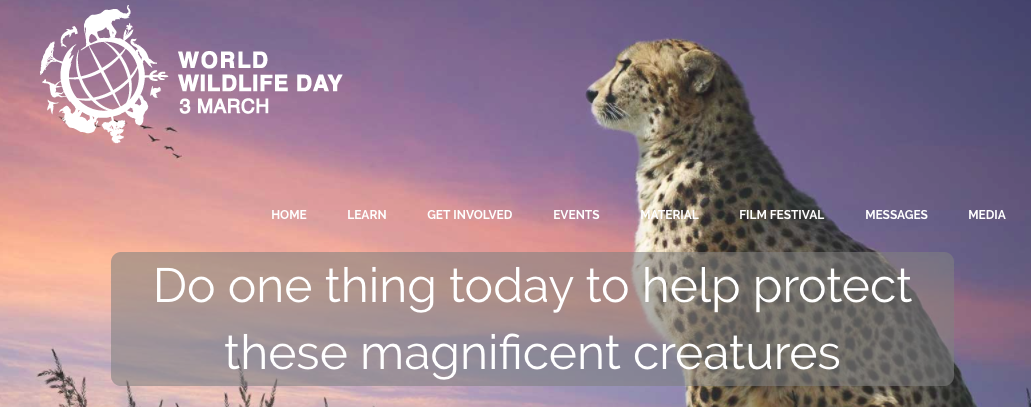
Veganic For Wildlife
March 3 is UN World Wildlife Day, which aims to “celebrate and raise awareness of the world’s wild animals and plants”. There is indeed much to do to raise awareness because the connection between wildlife and agriculture is not often discussed.
Animal agriculture is a primary driver of biodiversity loss and wildlife extinction. If you think that only factory farming is a problem and that free-range, pasture-raised and organic are desirable alternatives, think again. Ever since farm animals were brought to North America by European settlers, raising them has been detrimental to native wildlife.
From Take Extinction of Your Plate:
“Wild animals suffer not only the collateral damage of meat-related deforestation, drought, pollution and climate change, but also direct targeting by the meat industry. From grazing animals to predators, native species are frequently killed to protect meat-production profits. Grass-eating species such as elk, deer and pronghorn have been killed en masse to reserve more feed for cattle. Important habitat-creating animals such as beavers and prairie dogs have been decimated because they disrupt the homogenous landscapes desired by livestock managers.”
These days, the environmental movement is keen on promoting regenerative agriculture, in which grazing cattle plays a key role. The argument goes as follows: animals are essential to healthy ecosystems and ruminants fulfill necessary functions that help build soil and sequester carbon. Ergo, we need to kill the wild animals that are already on the land so that cows can take their place (and then also kill them).
Of course, that is not exactly what is being said. Wild animals are either disappeared from the conversation or they are said to have already been wiped out. Take the case of the bison. Proponents of regenerative agriculture tell us that because the native bison have sadly disappeared as a consequence of colonization, cattle are our next best bet: a necessary replacement brought to us by ranchers, the stewards of the land. All the while, bison are slaughtered every year in Yellowstone at the behest of ranchers.
As pro-ranching propaganda has been cloaked in environmental rhetoric and found adherents among those who should defend wildlife, it is ever more important to state that growing food does not require animal exploitation, and that liberating farm animals also results in a more compassionate, respectful relationship with wildlife.
For World Wildlife Day, support wildlife by going vegan and helping to grow a veganic food system. The UN is asking people to #DoOneThingToday; here are some steps you can take today:
- Switch to a plant-based diet
- Support local veganic farmers
- Join a community garden or start growing some of your food at home, without synthetic or animal inputs
- Counter the myth that animal exploitation is necessary by sharing interviews with veganic farmers
Want to do more? These are just a few ideas:
- Ask for veganic classes to be offered locally, everywhere from permaculture and gardening schools to university agricultural departments
- Organize at local, county and state levels for veganic public green spaces (school yards, public parks…)
- Buy a piece of land to set up a regenerative veganic farm and build wildlife habitat
- Volunteer with Seed the Commons!
For more information on veganic farming, our website Veganic World has a map of farmers in the US, interviews with veganic farmers that address common misconceptions, and resources to start growing your own food compassionately.

